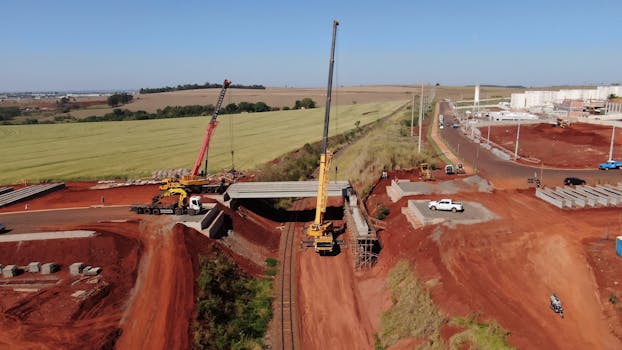+17162654855
+17162654855
IMR Publication News serves as an authoritative platform for delivering the latest industry updates, research insights, and significant developments across various sectors. Our news articles provide a comprehensive view of market trends, key findings, and groundbreaking initiatives, ensuring businesses and professionals stay ahead in a competitive landscape.
The News section on IMR Publication News highlights major industry events such as product launches, market expansions, mergers and acquisitions, financial reports, and strategic collaborations. This dedicated space allows businesses to gain valuable insights into evolving market dynamics, empowering them to make informed decisions.
At IMR Publication News, we cover a diverse range of industries, including Healthcare, Automotive, Utilities, Materials, Chemicals, Energy, Telecommunications, Technology, Financials, and Consumer Goods. Our mission is to ensure that professionals across these sectors have access to high-quality, data-driven news that shapes their industry’s future.
By featuring key industry updates and expert insights, IMR Publication News enhances brand visibility, credibility, and engagement for businesses worldwide. Whether it's the latest technological breakthrough or emerging market opportunities, our platform serves as a bridge between industry leaders, stakeholders, and decision-makers.
Stay informed with IMR Publication News – your trusted source for impactful industry news.
Energy

**
Canada is poised for a significant boost in resource development and infrastructure projects following the Senate's approval of Bill C-69 amendments. This landmark legislation, aimed at streamlining the environmental assessment process, has sparked considerable debate, pitting proponents who champion economic growth against environmental groups concerned about potential ecological impacts. The bill's passage marks a pivotal moment in Canada's energy sector and its broader economic strategy.
The core of Bill C-69's amendments lies in its efforts to expedite the lengthy and often complex environmental assessments for major resource projects. Critics argued that the previous system, established under the Impact Assessment Act, created excessive delays, increased costs, and ultimately stifled investment in crucial infrastructure. These delays, they contended, negatively impacted job creation, economic growth, and Canada's competitiveness on the global stage.
The amendments aim to address these concerns by:
The impact of these changes will be most acutely felt in several key sectors:
While proponents highlight the economic benefits, environmental groups have expressed serious concerns about the potential environmental consequences of accelerated project approvals. They argue that streamlining the assessment process might compromise thorough environmental reviews, potentially leading to increased environmental damage and harming vulnerable ecosystems. The balance between economic development and environmental protection remains a central point of contention.
The government maintains that the amendments do not compromise environmental safeguards. They emphasize the importance of robust environmental assessments and the continued involvement of environmental agencies in the review process. However, the effectiveness of these safeguards in the context of a faster approval process remains to be seen.
The government has also stressed the importance of meaningful and timely consultation with Indigenous communities. The amendments to Bill C-69 include provisions aimed at enhancing Indigenous participation in the assessment process and ensuring that their rights and interests are respected. This is particularly crucial given the significant impact that resource projects can have on Indigenous lands and traditional ways of life. Keywords such as Indigenous rights, Indigenous consultation, and reconciliation in Canada are vital to understanding the broader context of the bill.
The long-term economic implications of the bill's passage are significant. Proponents anticipate a surge in investment, job creation, and economic growth, particularly in resource-rich provinces. This increased activity could lead to higher tax revenues for the government and a boost to Canada's GDP. However, potential negative impacts, such as increased environmental damage and social disruption in affected communities, must also be considered.
The coming months will be critical in assessing the real-world effects of the amended Bill C-69. Monitoring the speed of project approvals, the quality of environmental assessments, and the level of Indigenous participation will be essential to evaluating the success of this legislative initiative. The Canadian government will need to ensure a transparent and accountable implementation process to maintain public trust and address concerns about both economic growth and environmental sustainability. Further analysis and ongoing discussion are vital to fully understanding the long-term impact of this crucial piece of legislation. The success of this legislation hinges on its ability to balance economic advancement with the preservation of Canada's natural environment and its commitment to reconciliation with Indigenous peoples.